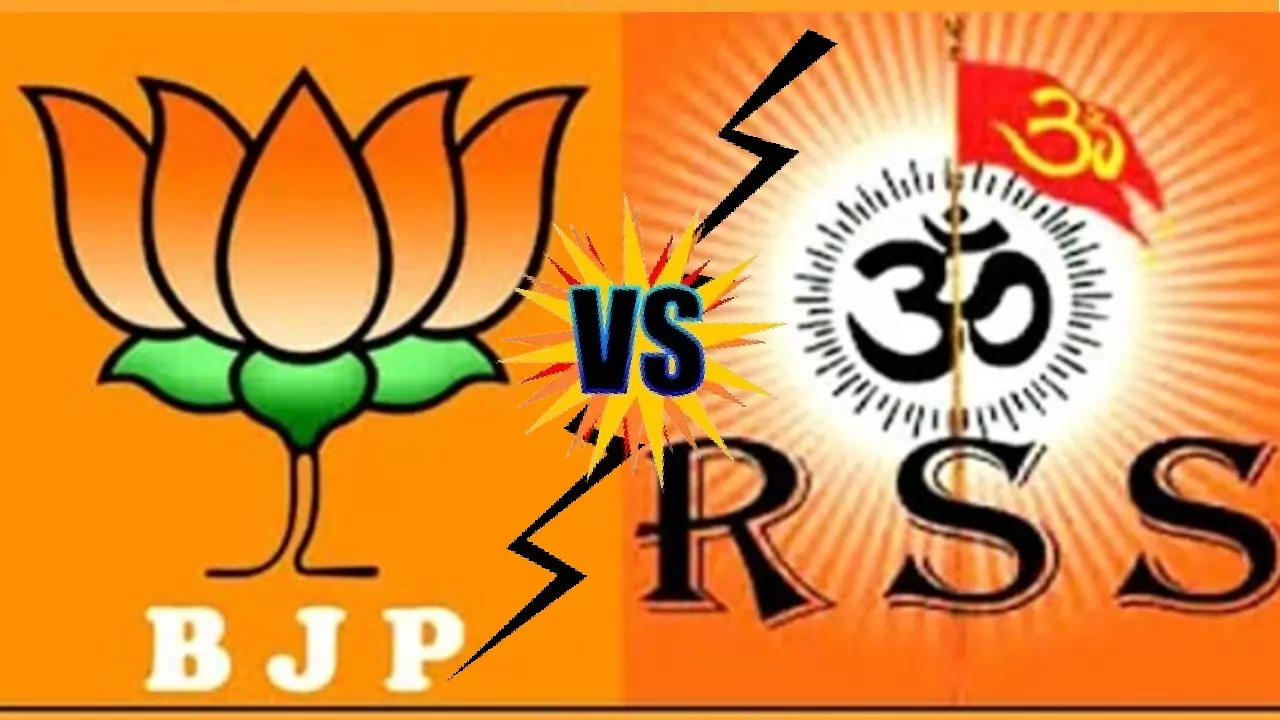
In a surprising development, Bharatiya Janata Party (BJP) President JP Nadda recently confirmed that the party no longer requires guidance from its ideological parent, the Rashtriya Swayamsevak Sangh (RSS). This revelation comes at a critical time, with the 2024 Lok Sabha elections still on, and signals a significant shift in the relationship between the two entities.
JP Nadda’s statement marks a pivotal moment in the BJP-RSS relationship, indicating the party’s newfound independence. This declaration, made during an interview with The Indian Express, highlights the growing autonomy of the BJP under Prime Minister Narendra Modi's leadership. Nadda’s remarks suggest that the BJP has been preparing to assert this independence for some time, and chose this moment to make it public.
The RSS has historically been viewed as the guiding force behind the BJP, shaping its ideological direction and political strategy. However, under Modi’s leadership, the BJP has increasingly distanced itself from the RSS. Modi's approach to governance has often kept the RSS at arm's length, with few instances of direct consultation between the Prime Minister and RSS leaders.
Narendra Modi’s tenure has been characterised by a strong, centralised leadership style, often sidelining traditional RSS influence. His refusal to visit the memorials of RSS founders KB Hedgewar and MS Golwalkar after becoming Prime Minister was seen as a clear signal of his independence. Modi’s administration has focused on delivering the Hindutva agenda while maintaining a distinct separation from the RSS’s operational influence.
The RSS’s discomfort with Modi’s leadership stems from its foundational belief in the supremacy of the organisation over any individual. The RSS has always emphasised that no one, not even its chief, should overshadow the organisation. Modi’s dominant presence and centralised control challenge this principle, leading to a palpable strain between the RSS and the BJP.
There is an inherent irony in the RSS’s stance. While it subtly promotes a form of benevolent dictatorship, it cannot tolerate an individual assuming such a role within its broader organisational structure. This tension has been exacerbated by Modi’s success in attracting RSS cadres to key positions within the government and the BJP, which contradicts the RSS’s ethos of selfless service.
The timing of Nadda’s announcement is significant, coming right before a crucial election. The RSS’s apparent detachment from the BJP’s campaign efforts reflects a broader sense of alienation. Nadda’s assertion of independence might be a strategic move to galvanise the BJP’s base and assert its self-sufficiency.
The future of the RSS-BJP relationship hinges on the outcome of the 2024 elections. If Modi secures a decisive victory, the RSS’s influence might further wane, solidifying Modi’s central role within the Sangh Parivar. Conversely, if the BJP falters, the RSS could regain its position as the guiding patriarch, reshaping its relationship with the party.
Nadda’s reference to the RSS as an “ideological front” rather than the parent organisation might reflect a strategic downplaying of the RSS’s role. Whether this was a deliberate choice or a linguistic oversight, it underscores the evolving dynamics within the Sangh Parivar.
As the political landscape shifts, the implications of this separation will become clearer post-election. The RSS’s response to the BJP’s electoral performance will determine the future balance of power within the Sangh Parivar. For now, the BJP’s declaration of independence marks a significant moment in its relationship with the RSS, with far-reaching consequences for Indian politics.





Copyright © 2026 Top Indian News
